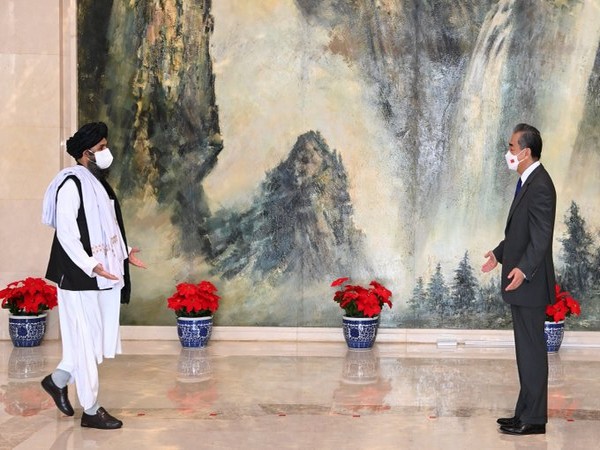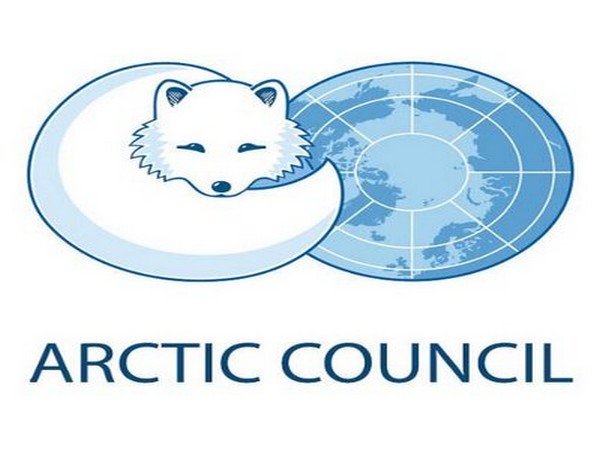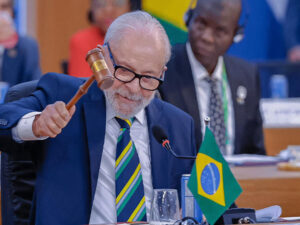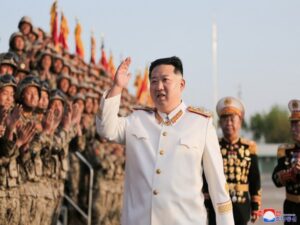
Doha [Qatar], October 26 (ANI): Chinese Foreign Minister Wang Yi on Monday met with Taliban‘s deputy Prime Minister Mullah Abdul Ghani in the Qatari capital of Doha, during which he urged the Taliban to adopt a friendly policy towards its neighboring countries.
During the meeting, Wang said that Afghanistan is currently facing a historic opportunity to truly master its own destiny, achieve reconciliation and tolerance, and advance national reconstruction, Xinhua reported. At the same time, Afghanistan is facing quadruple challenges, namely the humanitarian crisis, economic chaos, terrorist threats and governance difficulties, said Wang, adding that overcoming these challenges requires more understanding and support from the international community.
Wang expressed his hope that the Afghan Taliban will further demonstrate openness and tolerance, unite all ethnic groups and factions in Afghanistan to work together for peaceful reconstruction, and effectively protect the rights and interests of women and children.
The Chinese official also urged the Taliban to adopt a friendly policy toward its neighboring countries, and build a modern country that conforms to the wishes of the people as well as the trend of the times.
China always respects Afghanistan’s sovereignty, independence, and territorial integrity, and supports the Afghan people to independently determine their own destiny and choose the development path, said Wang.
He expressed China’s willingness to continue to provide humanitarian aid to Afghanistan within its capacity and work with the international community to help Afghanistan alleviate temporary difficulties and realize economic reconstruction as well as independent development.
Wang emphasized that the “East Turkestan Islamic Movement” (ETIM), an international terrorist organization listed by the UN Security Council, not only poses a real threat to China’s national security and territorial integrity but also jeopardizes domestic stability and long-term stability in Afghanistan.
He said that he hopes and believes that the Afghan Taliban will make a clean break with the ETIM and other terrorist organizations, and take effective measures to resolutely crack down on them.
For his part, Baradar briefed Wang on the current situation in Afghanistan, which he said is under control and improving, with the governments at all levels being gradually established and government decrees being carried out effectively.
Arctic Council expresses concern over China’s rising interference in the region

Hong Kong, October 26 (ANI): Arctic Council has raised concern over China‘s growing ambitions in the region as climate change has offered access to the vast mineral resources and new transport routes that reduce sea travel routes to Europe substantially.
China has announced Arctic Policy and has been planning several commercial and military activities in the region. Moreover, strengthened Sino- Russian economic cooperation in recent years has got China a platform to assert its presence in the region, reported The HK Post.
China‘s growing ambitions however have not gone well with the Arctic states — a group of eight countries. Now the tension is brewing up in the group as China is trying to play a big role in the region. Some countries have expressed concerns over it, and even Russia has signaled to block China in the region.
While China is not an Arctic state, it has made the region a strategic priority by declaring itself a ‘Near Arctic State’, reported The HK Post. China has plans to build the Polar Silk Road- an extension of the Belt Road Initiative (BRI), which can ensure speedy transport of raw material to China as well as export of manufactured products.
“China‘s growing power and resource needs are drawing its attention farther from home. Though initially centered on Eurasia, the BRI has been expanded to include Africa, Latin America, and the Arctic,” said North American and Arctic Defence and Security Network in a report.
China is keen on establishing strong navigation routes through the Arctic, as the distance between Shanghai and western Europe will reduce by two weeks, saving 30 percent of travel time if the conventional routes through Malacca Strait and Suez Canal are used, reported The HK Post.
“China is very interested in the Arctic. It is about securing the future trade routes to their markets, and resources. They are thinking in a much longer perspective than we are,” said Rune Rautio, an expert on the Arctic and China at Norwegian consultancy Akvaplan Niva.
Russia, Denmark, Finland, Iceland, Sweden, Norway, and the United States are members of the Arctic Council. And China is an observer in the council in 2013. (ANI)



















